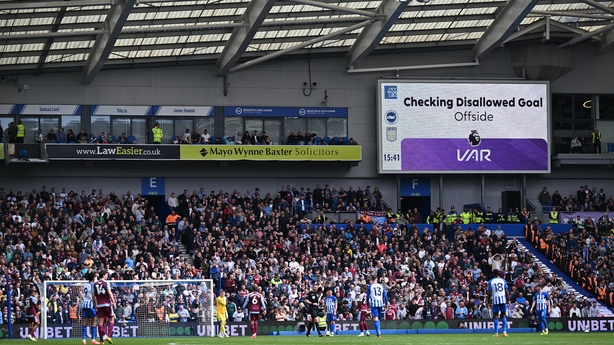A Premier League spending cap opposed by Manchester City and two other top-flight clubs will be trialled next season.
Clubs agreed at Thursday's Premier League annual general meeting to test out top-to-bottom anchoring (TBA) on a non-binding basis, as well as squad cost rules (SCR) similar to those already introduced by UEFA at European level.
City, who have separately launched a legal claim against Premier League rules governing the valuation of commercial deals, were understood to be one of three clubs, along with Manchester United and Aston Villa, who voted against proceeding with a legal and economic analysis of anchoring back in April.
The system would cap a club's spending on football costs such as player wages - regardless of how much revenue a club earns - as a multiple of the smallest central Premier League television and prize money allocation to be received by any club.
The multiple initially being trialled is five times that smallest allocation. So if Southampton earned £100million from central funds next season, the most any club could spend on football costs would be £500m.
The Premier League said the shadow trial would enable the league to fully evaluate the system and "complete its consultation with all relevant stakeholders".
This will include the Professional Footballers' Association, which has said it will oppose any measure which amounts to a hard salary cap. The union has enlisted leading sports barrister Nick De Marco to represent it in this matter, the man who helped the PFA force the withdrawal of an EFL salary cap introduced in 2020.
The Premier League said anchoring was "a pre-emptive measure to protect the competitive balance of the Premier League".
"This protection is intended not to have an impact unless significant revenue divergence of clubs occurs," its statement added.
Manchester United are understood to oppose anchoring, because they believe it is unfair to penalise them for their success in generating large, self-sustaining revenues built over decades of sporting achievement and commercial innovation.
They also fear that measures intended to level out competition within the Premier League risk undermining the competitiveness of leading English clubs with their European peers, which would, in turn, erode the global standing of the Premier League.
The squad cost rules will limit "on-pitch" spending on wages, transfer amortisation costs and so on to 85 per cent of a club's football revenue and their net profit/loss on player sales.
UEFA is already phasing in a similar system which will allow clubs to spending 80 per cent of revenue next season and 70 per cent thereafter.
"The overall system aims to improve and preserve clubs' financial sustainability and the competitive balance of the Premier League, promote aspiration of clubs, facilitate a workable alignment with other relevant competitions and support clubs' competitiveness in UEFA club competitions, while providing certainty and clarity for clubs, fans and stakeholders," the Premier League statement said.
The Premier League had said in March that clubs had paused discussions on a new funding deal with the EFL in order to focus on agreeing new financial rules.
Earlier in the day Premier League clubs voted 19 to one to keep VAR next season.

The league confirmed there had been a vote in favour of continuing with the technology in 2024-25.
Wolves – who last month called the vote to scrap VAR – were ultimately the only club to back its abolition.
The Black Country club were understood to be adamant, even the day before the Premier League's annual general meeting in Harrogate on Thursday, that they wanted a vote to take place, even though they anticipated a heavy defeat.
The Premier League, its clubs and referees’ body Professional Game Match Officials Limited acknowledged that improvements needed to be made for the benefit of the game and supporters.
Semi-automated offside technology is set to be introduced in the autumn, which top-flight sources say will reduce the length of time required for offside checks, while in-stadium announcements will be made where an on-field decision is changed following a VAR intervention.
The Premier League said the "high threshold" for intervention would also be maintained.
The Premier League also hopes to improve the fan experience of VAR by offering big screen replays of all VAR interventions where possible.

